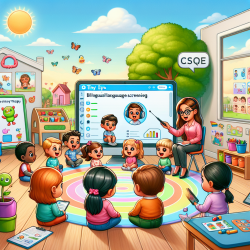Introduction
As a Special Education Director, I understand the importance of collaboration between parents and schools in fostering a nurturing educational environment for children with special needs. The "Working Together: A Handbook for Parents of Children with Special Needs in School" is a valuable resource that underscores the significance of parent involvement in the educational journey of their children.
The Role of Parents in Education
Parents are essential partners in education. Your knowledge of your child's strengths, abilities, needs, and challenges is invaluable. Your active participation in educational planning and decision-making significantly contributes to your child's success. In Manitoba, school boards are committed to providing appropriate educational opportunities for all students, including those with special needs, from age five to high school graduation or age 21.
Developments in Special Education
Since 1966, Manitoba schools have made significant strides in special education. Notable developments include:
- The Manitoba Special Education Review (1995)
- The Special Education Review Initiative (1998)
- Bill 13—Appropriate Programming Legislation (2004)
These initiatives have enhanced educational programming, funding processes, and accountability measures, emphasizing the importance of a strong partnership between schools and families.
Key Sections of the Handbook
The handbook is organized into five main sections:
- Introduction: Provides background, content, and organization of the handbook, including definitions of special education terms.
- Identification and Assessment: Outlines the process of identifying and assessing individual learning needs.
- Planning and Programming: Offers information about educational programming and ways parents can be involved.
- Communication: Highlights the importance of ongoing communication between families and schools.
- Additional Information: Contains forms and resources to assist in meeting your child's needs.
Effective Communication and Partnerships
Effective communication is the cornerstone of successful partnerships. Here are some tips for fostering a positive relationship with your child's school:
- Participate in decisions affecting your child's education.
- Communicate regularly with teachers and school staff.
- Share relevant information about your child's needs and successes.
- Be proactive in resolving issues and seek solutions collaboratively.
Conclusion
By working together, parents and schools can create a supportive and inclusive educational environment for children with special needs. For more detailed information and resources, please refer to the "Working Together" handbook.
For more information, please follow this link.










